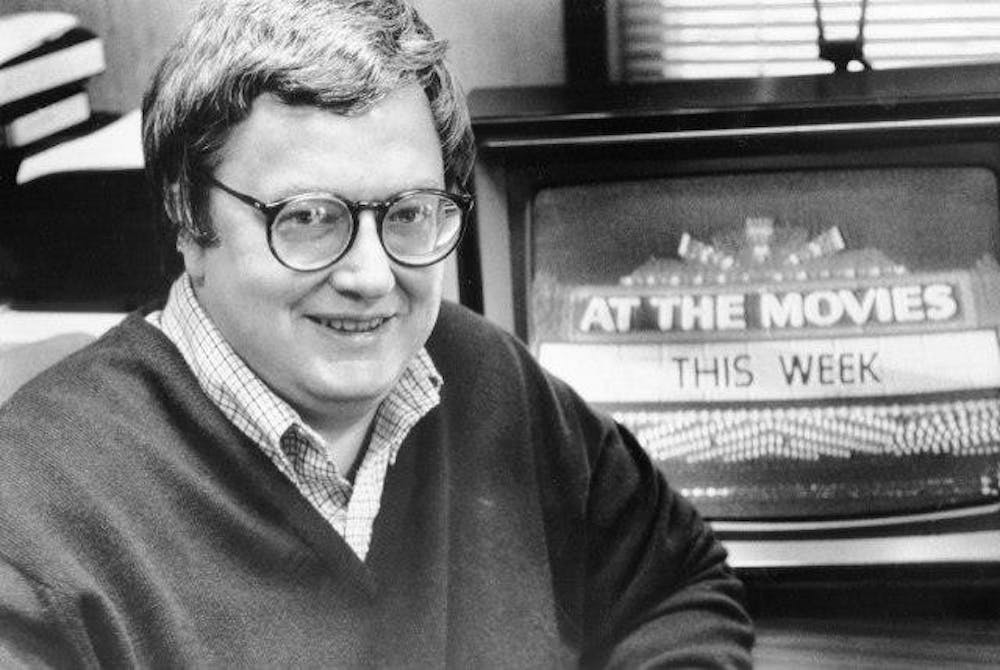Peter Jacobi, Professor Emeritus, in conversation with Weekend's Francisco Tirado
Peter Jacobi: I knew Gene Siskel a little better than I knew Roger. He was shrewd. And he was talented. He was able to use his midwestern routes and his midwestern spirituality and mentality, and brought that quite honestly and effectively to film—to film reviewing. There was nothing high-brow about him . And yet he had a tremendous sense of good taste. He knew what a good film was about. I think he tried to sell it to the audience in a very down-to-earth, direct manner using his gifts at writing as a great wordsmith, using journalistic techniques. His reviews were filled with scenes, moments. Just like a good feature writer or magazine article writer would do, so that the reader could experience through his words, what there was on the film, so that made his argument much more persuasive.
Francisco Tirado: Roger Ebert was known to hate 3-D films. He called it “a waste of a perfectly good dimension.” He has a lot of criticism for how Hollywood has changed since his day. Do you share the same sentiments?
PJ: I think he was purist in a way. He wanted the best for film and the best from film. When film went into gimmickry too much, he sort of put up his dukes and said, “No I don’t like that.”...But you know the whole genre of over-technologized filmmaking — that takes the place of real creativity and artistry and emotional juice...And there are films that have that kind of the purpose. He was able to understand that — that not every film needed to be held to certain superlative standards — that there were just come-and-go films that were acceptable for other reasons.
FT: Alright, so you knew Roger Ebert,. In what circumstances did you end up meeting him?
PJ: It was a long time ago. I was for a while, a consultant for WTTW in Chicago. Bill McCarter was the head of the station and he just wanted ideas from several consultants. One of those ideas that arose was for a program in which critics conversed about matters artistic. That was ultimately refined in film. In that one medium, Roger and Gene Siskel were chosen to do that. I met them in those situations and knew Gene also because his wife-to-be was one of my students at Northwestern. He was a very nice man. He was courteous, he was friendly. He didn’t suffer fools. He knew what he wanted and what he liked. He never lost what he was and that was a down-to-earth midwesterner with down-to-earth taste and he combined that with sensitivity. And I guess one of the first examples of where his ultimate power was shown was with “Bonnie and Clyde,” which with the first go-around was not terribly accepted, and he saw something in that film that was special. And he wrote about it. His ideas, his concepts spread and that helped to pass his name more widely in cinema circles. He was also more valiant and courageous. He apparently never complained for all those years of pain. Physical grief.
FT: So, you are a long-time professional critic. You’ve already spoken on how Roger Ebert has influenced the industry of criticism, but how do you think he has influenced you?
PJ: Well, I loved the way he reviewed. First of all he’s just a vibrant writer. It was interesting and exciting to read his stuff. It wasn’t academic or dry scholarship. It was really lively writing that came from a lively mind. He didn’t try to overwhelm you with lots of theories. He didn’t try to overwhelm you with too many points. He always grasped hold of one two or three things and those he developed. And around those he developed his reviews. They were good to read. They still are.
FT: Roger Ebert was, famously, a little mean in his reviews sometimes. How do you think his very distinct sense of snark contributed to the kind of criticism he made?
PJ: Well that was part of his personality, too. He was being himself on paper. He was never cruel. He was honest. In a film industry, there was a lot of money that was there. He wrote it as he saw it.
FT: And he held them to the standards of the money that was there.
PJ: Absolutely. He saw films as an artform. Not simply as an entertainment. He believed that good art has to be entertaining too, but he put film on a pedestal as an artform that counts that matters. So when he saw someone trying to destroy it, disturb it, weaken it, he said, “Hold on, that’s not good.” And he built a lot of careers, I think, through the way he wrote. He created a brand.
FT: You teach criticism here at the Ernie Pyle School of Journalism. For all aspiring critics writing on entertainment, what words of advice do you think we can take from Mr. Ebert?
PJ: Proving the points that he’s trying to make. Showing versus telling. When I’m done with a Roger Ebert review, I know exactly why he said what he did about the quality or lack of quality of the film. I have a good idea of what I were to experience, were I to go and see it. I used to be much more of a movie-goer because I do some film reviewing, so I came to trust him. Not always because I agreed, no, but I came to trust the way he approached a film and I can’t always say that about others.
Friends of Ebert: Peter Jacobi

Get stories like this in your inbox
Subscribe




